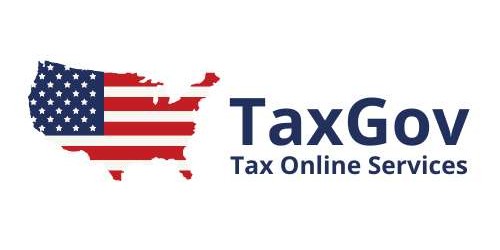Understanding ITIN Expiration
Understanding ITIN Expiration is crucial for individuals relying on this identification number for tax purposes. An ITIN, or Individual Taxpayer Identification Number, is issued by the IRS to enable individuals to fulfill their tax obligations, especially those who do not qualify for a Social Security Number. The IRS mandates that ITINs not used on a tax return for three consecutive years will expire. This policy ensures that only active and necessary ITINs remain in use, minimizing risks related to identity theft and fraud. It is therefore important to check whether your ITIN will expire, especially if you are planning to file taxes or must interact with financial institutions. Understanding whether your ITIN is still valid can help you avoid any disruptions in your tax filings and related activities.
Why ITINs Expire
Why ITINs Expire centers around practical and security concerns implemented by the IRS. The rationale for ITIN expiration includes the need to maintain accurate and updated information regarding taxpayers using ITINs. When an ITIN is not used in filing taxes for three consecutive years, it is deemed unnecessary and thus expires. This measure is also a protective mechanism against tax fraud and social security scams involving inactive or unused identification numbers. By enforcing this expiration rule, the IRS intends to keep their records clean and limit any potential for misuse of inactive ITINs. Renewing an expired ITIN is vital if you need to continue using it for filing taxes or other financial activities, ensuring you remain compliant with tax regulations.
Need help getting your ITIN?
We can help you apply for your ITIN quickly and easily. Let our team handle the process for you.
Consequences of an Expired ITIN
Consequences of an Expired ITIN can be quite significant for those who rely on it for essential financial processes. Once an ITIN expires, any tax return submitted with that number will be processed without any exemptions and can cause delays in tax refunds. This can be particularly troublesome for individuals who need to receive any owed tax credits or refunds on time. Additionally, both federal and state tax authorities may send notices of non-compliance if the ITIN associated with submitted documentation has expired, which further complicates one’s financial situation. Understanding these consequences highlights the importance of keeping your ITIN valid and being proactive in renewing it before engaging in any tax-related activities.
Renewing ITIN for Your Family
Renewing ITIN for Your Family is important because many families depend on it to file joint tax returns or claim refunds. When renewing ITINs for the whole family, it is essential to ensure that each family member’s number is still valid, especially when filing taxes together. Be mindful that each family member’s ITIN is subject to separate expiration and renewal requirements, and overlooking these can lead to partial non-compliance. Gather the necessary documentation for each individual, complete a separate Form W-7, and submit them to the IRS as a family unit to ensure everyone maintains their ability to file taxes and claim benefits efficiently.
How to Renew Your ITIN
How to Renew Your ITIN is a straightforward process, though it requires attention to detail and timeliness. To renew your ITIN, you must submit a correctly filled W-7 form, along with the required identification documents such as a passport or national ID, to the IRS. It is crucial to begin this renewal process well before you need to file your tax return to avoid any potential delays or complications. Another key detail is providing the original or certified copies of your documentation, as the IRS will not accept simple photocopies. It’s advisable to check the expiration dates regularly and respond promptly to any IRS notifications regarding your ITIN to ensure a smooth and hassle-free renewal experience.
Checking ITIN Status
Checking ITIN Status is an advisable practice to prevent any inconveniences. The IRS allows individuals to inquire about their ITIN status online or through telephone contact. If your ITIN has expired, the process also helps determine the next steps to take in renewing your identification number. Regularly monitoring your ITIN’s status not only secures compliance but also helps anticipate any upcoming obligations or expiration timelines. By keeping track, either through IRS communication or personal records, you can take timely action in maintaining your taxpayer responsibilities without unnecessary hurdles.
Special Cases in ITIN Expiration
Special Cases in ITIN Expiration may arise, with different rules applying to various categories of taxpayers. For example, ITINs with specific middle digits considered at risk for identity theft might be subjected to earlier expiration guidelines. Moreover, ITINs that expire based on non-use for three consecutive years will also affect those who have obtained them for dependents. In cases involving a change in status, such as becoming eligible for a Social Security Number, the previously issued ITIN automatically becomes void. These scenarios underscore the need for diligent management of one’s tax identification and staying informed about how changes in regulations can impact one’s ITIN status and overall tax responsibilities.
Need help getting your ITIN?
We can help you apply for your ITIN quickly and easily. Let our team handle the process for you.
Contacting IRS for ITIN Assistance
Contacting IRS for ITIN Assistance is a practical step for clarifications on ITIN expiration and renewal. The IRS provides a variety of support options, including toll-free helplines and support centers across the country to assist taxpayers. If you have questions regarding your ITIN, reaching out to the IRS can furnish you with accurate information tailored to your unique situation. They can offer guidance on the expiration status of your ITIN, help rectify errors, and support your renewal or application processes. Engaging directly with IRS representatives can ensure you receive reliable insights and take appropriate steps toward maintaining your tax compliance effectively.


